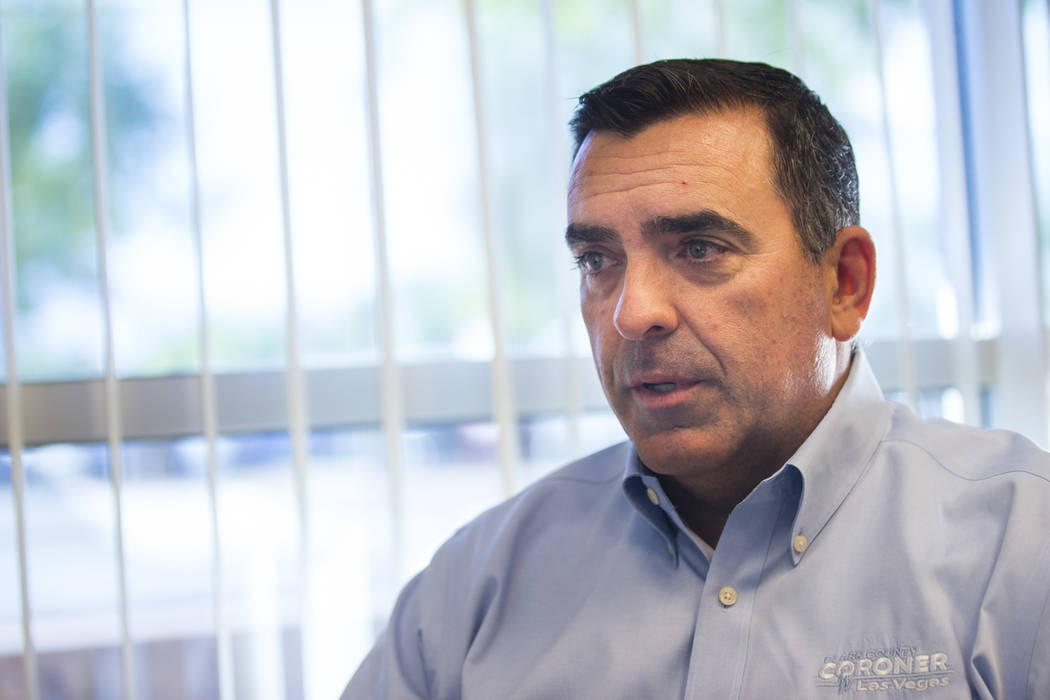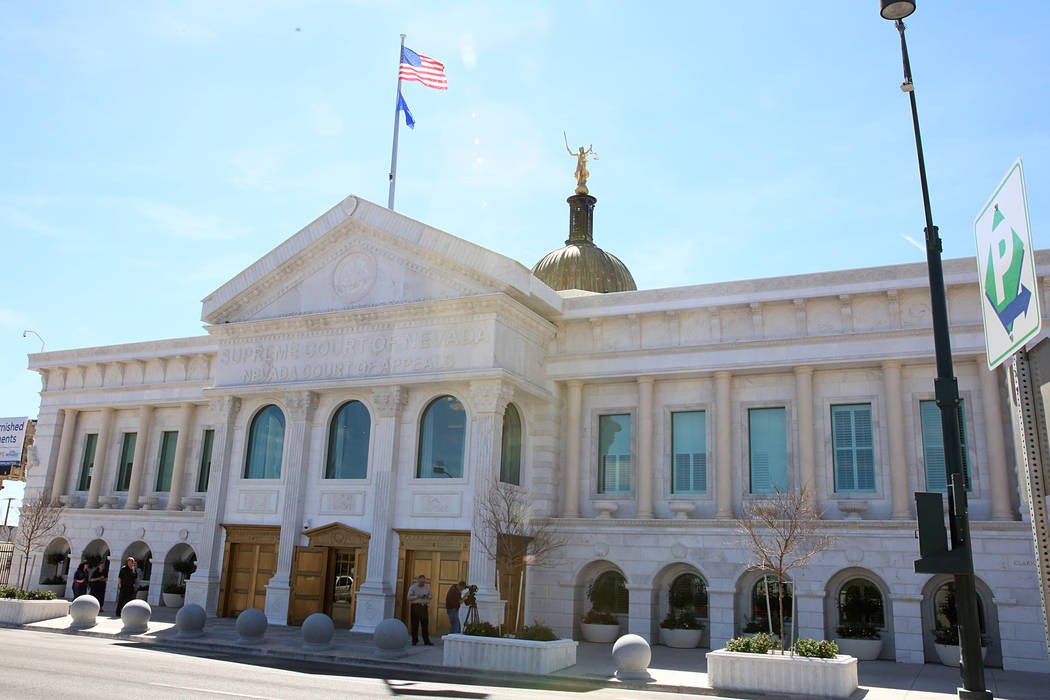Nevada Supreme Court hears arguments in RJ’s case over autopsy records
The Clark County coroner should not be able to keep certain autopsy reports confidential, a lawyer for the Las Vegas Review-Journal argued before the Nevada Supreme Court on Monday.
“Sometimes coroners make mistakes,” attorney Maggie McLetchie said. “Access to autopsy reports has helped vindicate the wrongfully convicted. It’s helped correct errors when the coroner’s office has made errors. Coroners are not perfect.”
Two years after a lower court ruling to the contrary, Coroner John Fudenberg maintains that autopsy reports are confidential, citing a 37-year-old opinion from the Nevada attorney general’s office.
The county has appealed District Judge Jim Crockett’s decision, which was made in response to the newspaper’s request for autopsy reports to determine whether children had suffered abuse prior to their deaths and whether Child Protective Services could have prevented the abuse.
“This is what the Public Records Act is designed to do,” McLetchie argued. “The public itself is allowed to assess, for example: Are there too many kids in the foster care system who are dying?”
Micah Echols, who represents the coroner, argued that many of the child autopsy reports the Review-Journal requested were reviewed by the Clark County Child Death Review team, which the county claims makes them exempt from disclosure.
The county also continues to deny requests for autopsy records, even for cases that are not part of the child death review process.
Review-Journal attorneys have argued that Nevada’s Public Records Act requires governments to release the documents.
Justice Lidia Stiglich asked Echols what would happen if the Child Death Review team used newspaper stories for an investigation.
“Have those newspaper articles been transformed into a confidential document?” the justice asked.
Echols responded: “If I had to guess, I probably would say no.”
“So how would we apply that to newspaper articles differently than we would apply it to the autopsy in this context?” Stiglich asked.
Echols said state law lists what materials the team could gather for its review.
After Monday’s arguments, McLetchie said limiting production of autopsy reports “would thwart public accountability about matters like officer-involved homicides, hinder public health research, and allow the coroner’s work to go unchecked.”
Last year, the coroner’s office refused to release autopsy reports for the victims of a helicopter crash at the Grand Canyon.
The coroner only released the autopsy reports of the 58 victims of the Oct. 1, 2017, mass shooting on the Las Vegas Strip after District Judge Timothy Williams ordered him to make the records public. However, victims’ names were redacted from the reports. The coroner also released the autopsy report of the killer.
“The coroner’s office has consistently demonstrated resistance to transparency. John Fudenberg himself, acting as Clark County’s lead lobbyist, was at the Legislature this year trying to do an end-around the Supreme Court and have all autopsies made confidential by statute,” Review-Journal Executive Editor Glenn Cook said. “The coroner’s office cannot be immune to public scrutiny and accountability. Its job is too important to the criminal justice system to allow that to happen.”
Supreme Court justices took the county’s appeal under advisement and did not say when they would issue a ruling.
Contact David Ferrara at dferrara@reviewjournal.com or 702-380-1039. Follow @randompoker on Twitter.
























